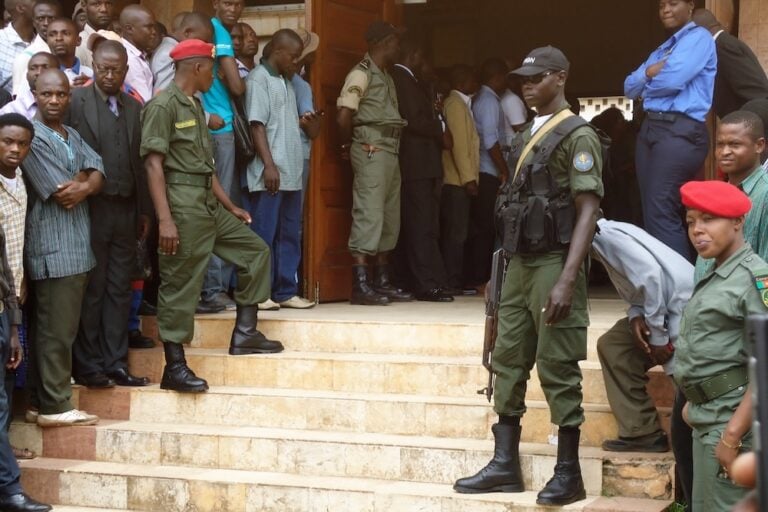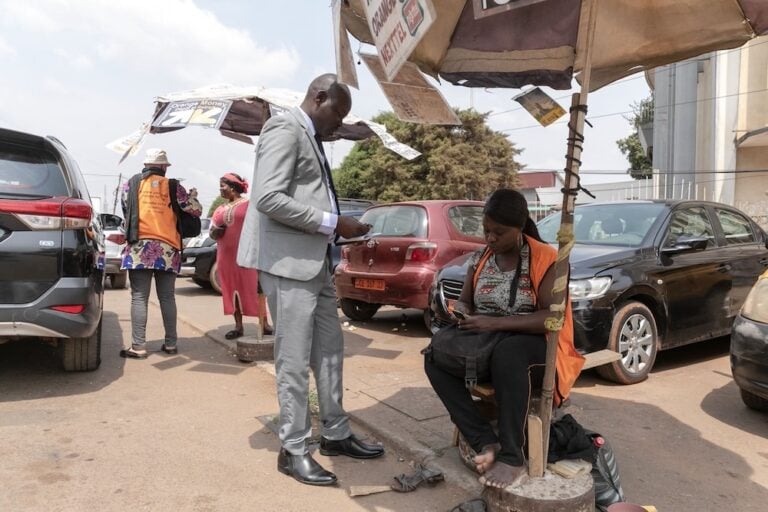(RSF/IFEX) – RSF has condemned a crackdown on the media in the run-up to the 2004 presidential elections as the authorities ordered about a dozen independent television and radio stations to shut down. “Cameroon is on its way to becoming one of the most repressive countries in central Africa as far as freedom of expression […]
(RSF/IFEX) – RSF has condemned a crackdown on the media in the run-up to the 2004 presidential elections as the authorities ordered about a dozen independent television and radio stations to shut down.
“Cameroon is on its way to becoming one of the most repressive countries in central Africa as far as freedom of expression is concerned,” said RSF Secretary-General Robert Ménard. “We fear that the situation could deteriorate further still as the presidential elections approach,” he added.
About a dozen independent television and radio stations received orders during the week of 22 December 2003 to close by midnight on 31 December at the latest. The affected stations that Agence France-Presse (AFP) was able to reach said that Communications Ministry representatives told them they did not have “official permission to operate.”
The authorities added that the broadcast media sector is “too sensitive not to be controlled,” in an apparent reference to the notorious Radio Milles Collines that incited genocide in Rwanda in 1994.
At least five radio and two television stations in the Bamenda region (the principal city of North West province) were given orders to close. These included Radio Abakwa, Redemption Radio, Che Radio and Republican Television Network as well as the BBC.
In Bafoussam (the principal city of West province), Batcham FM and Radio Star were also told to cease broadcasting and Tankou University Radio was ordered not to “attempt to open.” Radio Yemba and Radio Site Art, in Dschang and Bafang (West province), were told to shut down by 1 January 2004 at the latest.
Many independent newspapers condemned the move, saying it damages news and information diversity in the country. “This is returning us step by step to a near monopoly for Cameroon Radio Television (CRTV),” said the independent daily “Mutations”.
RSF also noted that radio Freedom FM, which was created by Pius Njawé, owner of the Le Messager press group, is still under a government ban. On the eve of its launch in May, security forces sealed the station’s broadcast equipment.
A legal battle that Njawé began in order to get the ban lifted backfired on him. In mid-October, Communications Minister, Jacques Fame Ndongo filed a complaint against the journalist for having “set up and run a broadcast media company without permission.” The minister demanded the seizure of Freedom FM’s equipment and that Njawé be fined (see IFEX alerts of 18 November, 19 September, 29 and 27 May 2003).


